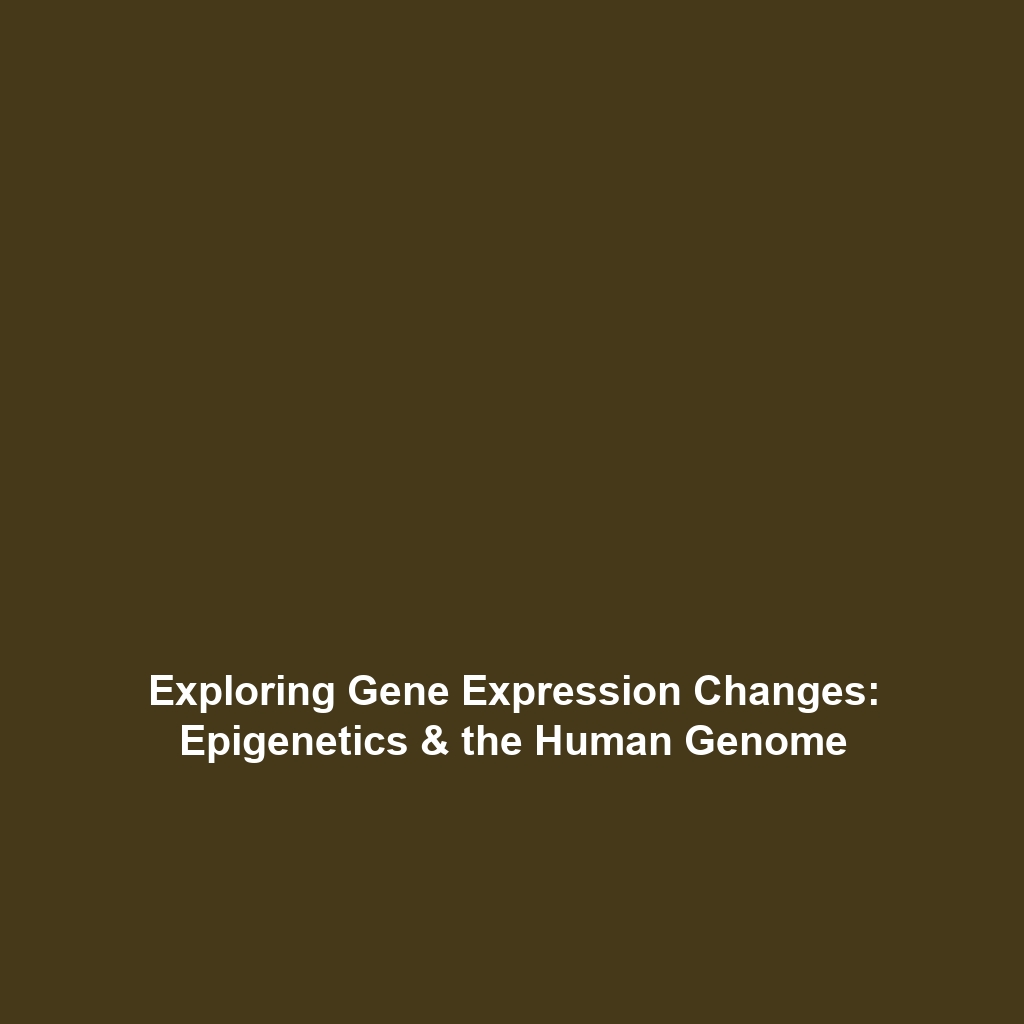The Impact of Epigenetic Changes on Gene Expression within the Human Genome Project
Introduction: The study of changes in gene expression that do not involve alterations in DNA sequence is pivotal for understanding the complexity of the human genome. Epigenetic mechanisms, particularly DNA methylation and histone modification, play a crucial role in regulating gene activity and, consequently, phenotypic variation. This topic is significant within the broader context of the Human Genome Project (HGP), which aimed to map and understand all the genes of the human species. By exploring these epigenetic changes, researchers can unravel the intricate layers of genetic regulation that influence health and disease, thus enhancing our comprehension of genomics.
Key Concepts
Several major concepts underpin the study of gene expression changes that do not involve changes in DNA sequence:
- DNA Methylation: This process involves the addition of a methyl group to DNA, typically at cytosine bases, which can suppress gene expression.
- Histone Modification: The post-translational modifications of histone proteins can alter chromatin structure and accessibility, thus influencing gene activity.
- Transcriptional Regulation: The interaction of various transcription factors and epigenetic markers determines whether specific genes are activated or silenced.
These concepts illustrate the complexity of gene expression regulation and highlight their essential role within the HGP framework.
Applications and Real-World Uses
Epigenetic modifications have significant real-world applications, particularly in medicine and biotechnology:
- Cancer Research: Understanding how DNA methylation and histone modification contribute to cancer can lead to innovative therapies.
- Personalized Medicine: Epigenetic profiling can inform individualized treatment plans based on a patient’s unique gene expression patterns.
- Pharmacogenomics: Insights into epigenetic modifications can enhance drug efficacy and minimize side effects in specific populations.
These applications illustrate how understanding epigenetic changes enhances our approach to various health issues and aligns with the goals of the Human Genome Project.
Current Challenges
Despite significant advances, researchers face several challenges in studying epigenetic changes:
- Complexity of Epigenetic Regulation: The interplay of various epigenetic factors complicates understanding and manipulation.
- Technical Limitations: Current technologies can be limited in accurately measuring all epigenetic modifications across the genome.
- Ethical Concerns: The implications of manipulating epigenetic mechanisms raise ethical questions regarding potential misuse.
These challenges pose obstacles for researchers and practitioners in the field of genomics.
Future Research and Innovations
Looking ahead, several innovations are poised to enhance our understanding of epigenetic changes:
- Next-Generation Sequencing (NGS): Improved sequencing technologies will allow for more comprehensive epigenetic analyses.
- CRISPR-Based Epigenetic Editing: This revolutionary technology may enable precise modifications of epigenetic marks without altering the DNA sequence.
- Longitudinal Studies: Research following individuals over time will provide insights into how environmental factors influence epigenetic changes.
These advancements represent significant opportunities for future research, impacting our understanding of the Human Genome Project’s implications on human health.
Conclusion
The study of changes in gene expression that do not involve changes in DNA sequence, such as DNA methylation and histone modification, is a critical component of genomics and is deeply intertwined with the objectives of the Human Genome Project. By deepening our understanding of these mechanisms, we pave the way for groundbreaking advancements in medicine and biotechnology. For those interested in exploring more related topics, consider reading about personalized medicine and cancer research innovations.



